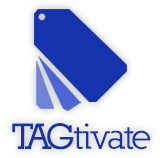 Anyone who’s followed mobile technology over the last 18 months or so knows that Google and Amazon are in an all out war .When Amazon launched their Kindle Fire tablet, loosely based on the Android operating system, they immediately set up a walled garden ecosystem to provide Amazon content to the tablet device.
Anyone who’s followed mobile technology over the last 18 months or so knows that Google and Amazon are in an all out war .When Amazon launched their Kindle Fire tablet, loosely based on the Android operating system, they immediately set up a walled garden ecosystem to provide Amazon content to the tablet device.
Amazon has been in the online e-commerce business a lot longer than just about everybody else. For that they are one of the most trusted names in e-commerce. They’ve also built up a huge collection of content that fuels everyone’s taste in movies, music and of course books.
Many feel that Google’s Android powered tablets, dubbed “Nexus 7 and Nexus 10” are direct competitors for Amazon complete with their own media and app store called “Google Play”.
Now it looks like Google is planning on expanding their click and mortar business to directly compete with Amazon. The acquisition of Waterloo based BufferBox is just another indicator of what Google may have planned in the not so distant future.
BufferBox preceded “Amazon Lockers” by over a year.
When BufferBox co-founder [Mike McCauley] first heard about Amazon Lockers he was disheartened and felt their idea had been ripped off. He was later able to turn it into a much more positive spin when he said: Amazon “put credibility behind the technology,” McCauley said. “Now there’s a big new market Amazon has created. Because Amazon controls 30% of the e-commerce market, you need a third party to offer the service for everyone else.” to the Wall Street Journal read more at http://markerly.com/p/_ZhMm73
The concept is simple, BufferBox lockers are placed in high traffic businesses. Customers of e-commerce shopping sites that have partnered with BufferBox can use the lockers for a safe, secure, and sometimes 24 hour a day place to receive packages. With BufferBox and the Amazon Lockers, long gone are the days someone has to worry about their purchase becoming lost, stolen or damaged, waiting in an overnight carriers pick up location or on the front step.
We’ve even heard from several sources that Memphis based FedEx is working on a similar locker based system that will solve a billion dollar problem with drivers having to attempt a delivery to the same address multiple times a week. This will also solve problems for e-commerce customers who may not get off work until after their local delivery service closes for the day.
Late last month Google announced that they had acquired BufferBox. The team at BufferBox will all be joining Google in the acquisition but they don’t have to move far. Google’s Waterloo offices are on the upper floor of the building where BufferBox is based.
It’s obvious from our interview with BufferBox co-founder Mike McCauley that the small startup is looking to disrupt the way that packages everywhere are delivered. Now they’ll get to do that on a huge scale as part of Google.
“Being a small company and a startup, there’s obviously a lot of challenges,” BufferBox chief executive Mr. McCauley said in an interview with the Financial Post
“So us being able to work very closely with someone like Google allows us to leverage their resources and share vision and combine thoughts and talent together to really make something a lot bigger than we ever would have imagined. We’re really excited to be able to build out that vision quite a bit quicker than we otherwise would have without them onside.”
Linkage:
Source: Financial Post
More startup news from “everywhere else”
Check out everywhereelse.co The Startup Conference
 Contractors spend a lot of time on the road and working on various projects. Typically they have to keep hand written notes in notebooks and on clipboards and then either they transcribe all that information themselves into Excel or Word, or take it back to the office for someone else to do. For some smaller independent contractors that typically means their significant other is spent doing data entry instead of savoring what little time they have outside of “work”.
Contractors spend a lot of time on the road and working on various projects. Typically they have to keep hand written notes in notebooks and on clipboards and then either they transcribe all that information themselves into Excel or Word, or take it back to the office for someone else to do. For some smaller independent contractors that typically means their significant other is spent doing data entry instead of savoring what little time they have outside of “work”. We got a chance to talk with Brendon Sedo, co-founder of JoistApp, check out the interview below.
We got a chance to talk with Brendon Sedo, co-founder of JoistApp, check out the interview below.














